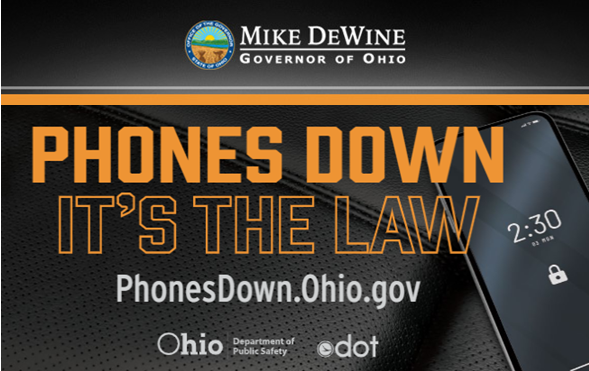BBB Releases Top Ten Scams of 2019
Written by WKTN Staff on February 5, 2020
Columbus, OH (February 4, 2020) – BBB compiled reports from its Scam Tracker to list the top ten most reported scams in 2019.
BBB serving Central Ohio received 671 Scam Tracker reports throughout the year and consumers reported a total loss of $222,772. Based on the Scam reports, the top means of contact was by phone and the the top method of payment to the scammers was credit card.
The largest single reported loss in 2019 was $100,000 through a sweepstakes scam; followed by a scam involving an online purchase of a Winnebago for $20,000. The total median dollar loss in 2019 was $600.
Through analysis of the scam tracker, BBB reports the approximate dollars lost in 2019 by age group are as follows:
.18 – 24: $7,600
.25 – 34: $9,000
.35 – 44: $31,000
.45 – 54: $18,000
.55 – 64: $15,000
.65+: $138,000
Consumers over 65 reported losses 200% more than all other age groups combined.
Below are the top 10 Scams of 2019 with links to tips on ways to avoid falling for the scams:
.Phishing Scams occur when someone receives an email, phone call or text message in which the scammer urges the person to click a link, share information, or download an attachment which likely contains malware. In the case of an email or text, the link frequently leads to a form, which prompts the target to enter personal information.
.Online Purchasing Scams happen when you visit a website or ads pop up with enticing gadgets, cute merchandise or items with a subliminal “I gotta have it” message making it irresistible to at least click on it to check it out. Unfortunately, sometimes these companies aren’t quite what they seem and once the order is placed, they don’t send a thing.
.Sweepstakes Scams fool you into thinking you’ve won a prize or lottery jackpot, but you need to pay upfront fees to receive it. No matter how much you shell out, the winnings never materialize.
.Tech Support Scams happen when a tech support rep calls you at home and offers to fix a computer bug that you haven’t even noticed, or a popup warning appears on your screen instructing you to dial a number for help. In this con, scammers pose as tech support employees of well-known computer companies and hassle victims into paying for their “support.”
.Employment Scams take advantage of those seeking employment, so beware of scam job postings, fake recruiter emails, and work-at-home schemes. These cons often use real company names and can be very convincing. After you are “hired,” the company may charge you upfront for “training” or you may need to provide your personal information to run a credit check or set up direct deposit. Other forms of this scam tell you to buy expensive equipment and supplies to set up your work at home. It may look as though you are starting a great new career, but you are really giving personal information and/or money to scammers.
.Government Grant Scams often don’t use fear or intimidation, but the promise of a “free” grant to pay for education costs, home repairs, or unpaid bills. These scammers reach out through social media and phone calls, either way they congratulate you on your eligibility, then ask for your checking account information so they can “deposit your grant directly into your account,” or cover a one-time “processing fee.” But, you’ll never see the grant they promise; and they will disappear with your money.
.Debt Collection Scams are one of the most frightening and persistent scam types. Victims often report that scammers harass them for weeks or even months, both at home and at work, trying to get them to pay a debt they don’t even owe.
.Advance Fee Loan Scams happen when a “broker” promises a loan no matter how bad your credit history. There are many versions of this scam: home mortgage refinancing, student loan consolidation, special grants, or just an emergency loan to pay the bills. The catch is some kind of up-front “processing fee” or insurance to get the loan or to lock in the low interest rate. Once you hand over the payment, the “lender” vanishes along with the money. In the United States, it is illegal for companies doing business by phone to promise a loan and require payment before they deliver.
.Fake Check Scams take many different forms, but the underlying scam is the same. Scammers take advantage of the fact that many people don’t understand the rules about check deposits and wire transfers. It is sometimes called the “overpayment scam” because the scammer will give you a check for much more money than you are owed. When you deposit the check, the funds will appear to be available within days. However, the fake check can take weeks to be discovered. Eventually the check bounces, but in the meantime you’ve wired back the “overpayment” to the scammer. A wire transfer is like sending cash; once it’s gone, it is very hard to trace.
.Credit Card Scams typically involve impersonation of a bank or other credit card issuer. By verifying account information, con artists try to fool their targets into sharing credit card or banking information.
Because money loss and identity theft can happen to anyone, BBB encourages consumers to protect and inform others by reporting any scam-related experiences to BBB’s Scam Tracker.
Check bbb.org for more information on how to avoid scams.
For more information, follow BBB on Facebook, Twitter, or at bbb.org.



